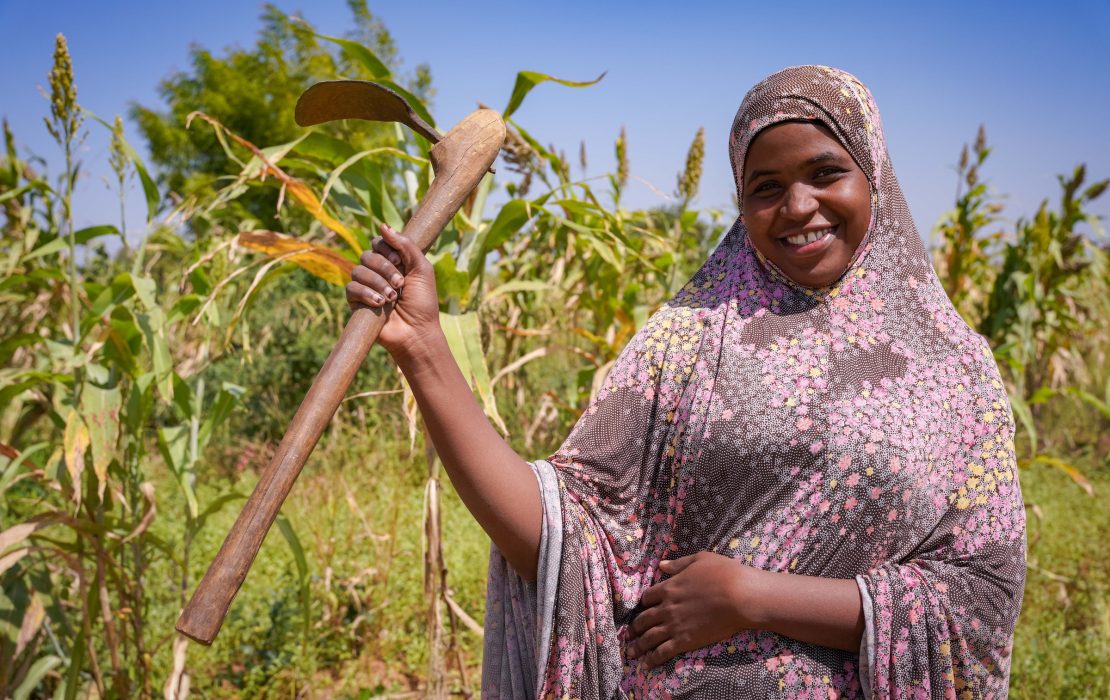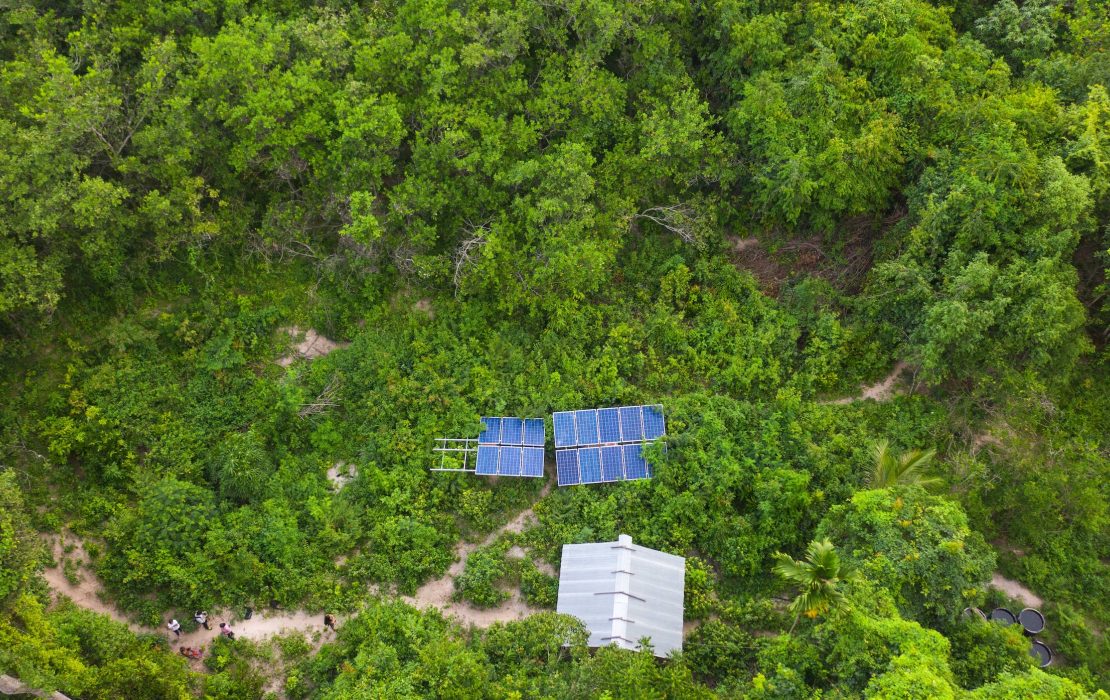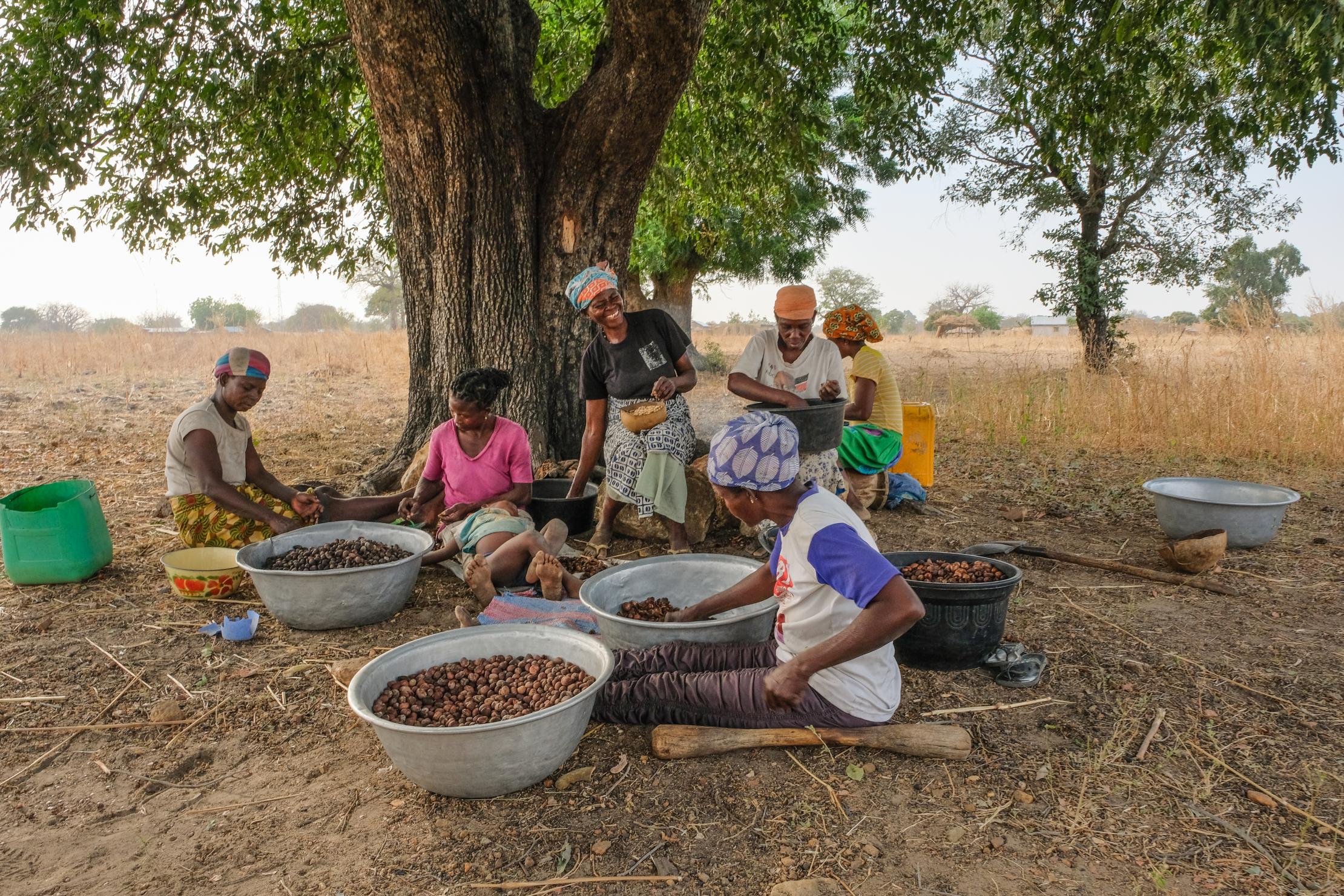
Photo: Axel Fassio/CIFOR
Shea, from which shea butter is derived, is a natural fat extracted from the kernels of the shea tree (Vitellaria paradoxa), native to the African continent. It’s a valuable commodity widely used for cooking, fabricating cosmetics, food, pharmaceuticals, and, most significantly, as a substitute for cocoa butter in chocolate production. In Ghana, shea stands as one of the leading export commodities. According to recent reports, the global market for shea butter is estimated at US$2.75 billion, with projections indicating a growth to $5.58 billion by the year 2033.
How shea contributes to women’s economic empowerment
Northwest of Tamale, in the Ghanaian savanna landscapes, Abubakar Barkatu is one of the women working at the Tungteiya Women’s Shea Butter Association. For the past seven years, she has been processing shea butter while raising her seven children, whose ages range from four to 23: "I generate income from the shea business, which I then allocate towards various family needs such as covering my children's school fees, renewing their health insurance and purchasing essential food items,” she proudly states. Abubakar also feels that her financial contributions to the family’s well-being have strengthened her position inside the community.
Tungteiya is one of 26 women’s cooperatives supported by the Ghana Shea Landscape Emissions Reductions Project, which seeks to restore degraded shea parklands and promotes investments to empower women in the shea value chain. Within the cooperative, approximately 500 women employ traditional techniques, inherited through generations, to process shea kernels. The association also engages in partnerships with international cosmetic firms and directs investments towards community projects encompassing healthcare, sanitation, water access, and education initiatives.
“Through management training and hands-on participation in nursery activities, I've gained advanced knowledge and skills in raising shea seedlings. Now, we're reforesting shea parklands to ensure a sustainable supply of shea nuts. Furthermore, the wages I earn from working in a nursery contribute to funding my activities and investments in the shea business,” Abubakar states.
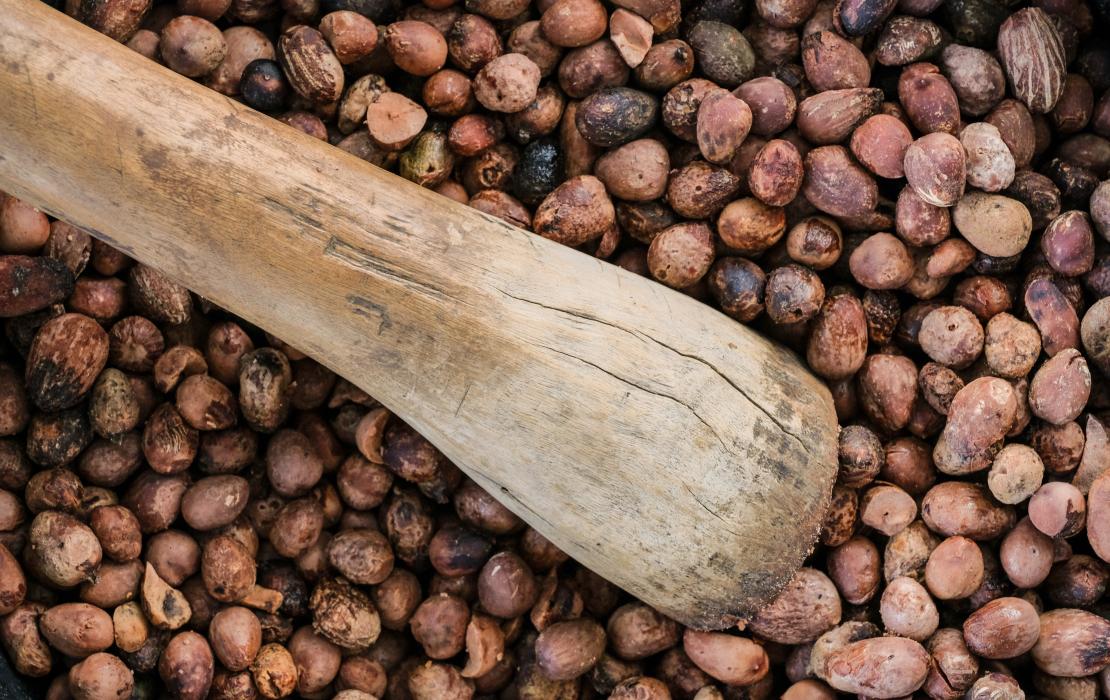
Shea tree kernels produce a natural fat from which shea butter is derived. Photo: Axel Fassio/CIFOR
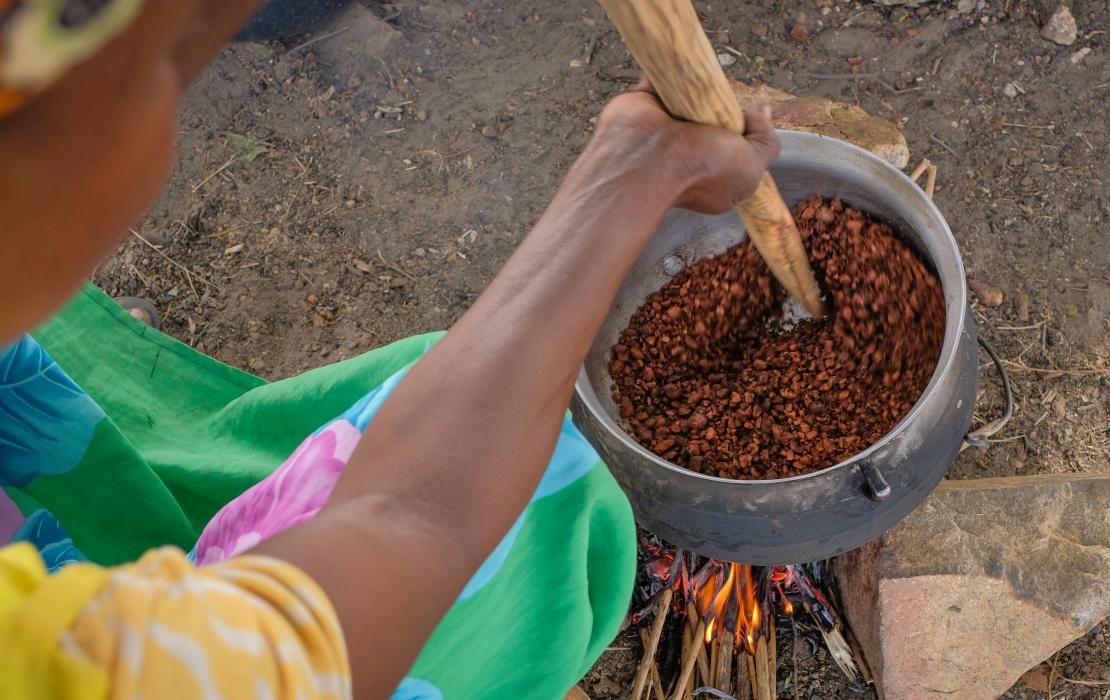
Women in Ghana employ traditional techniques, inherited through generations, to process shea kernels. Photo: Axel Fassio/CIFOR
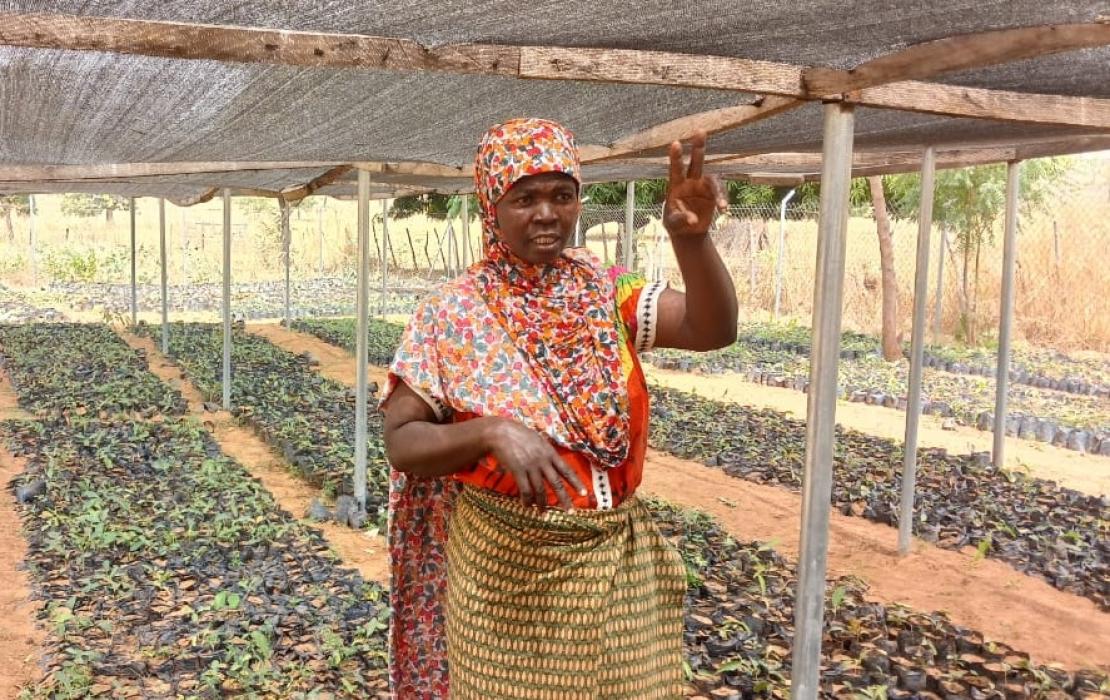
Abubakar Barkatu works at a shea tree nursery to provide for her family. Photo: Global Shea Alliance
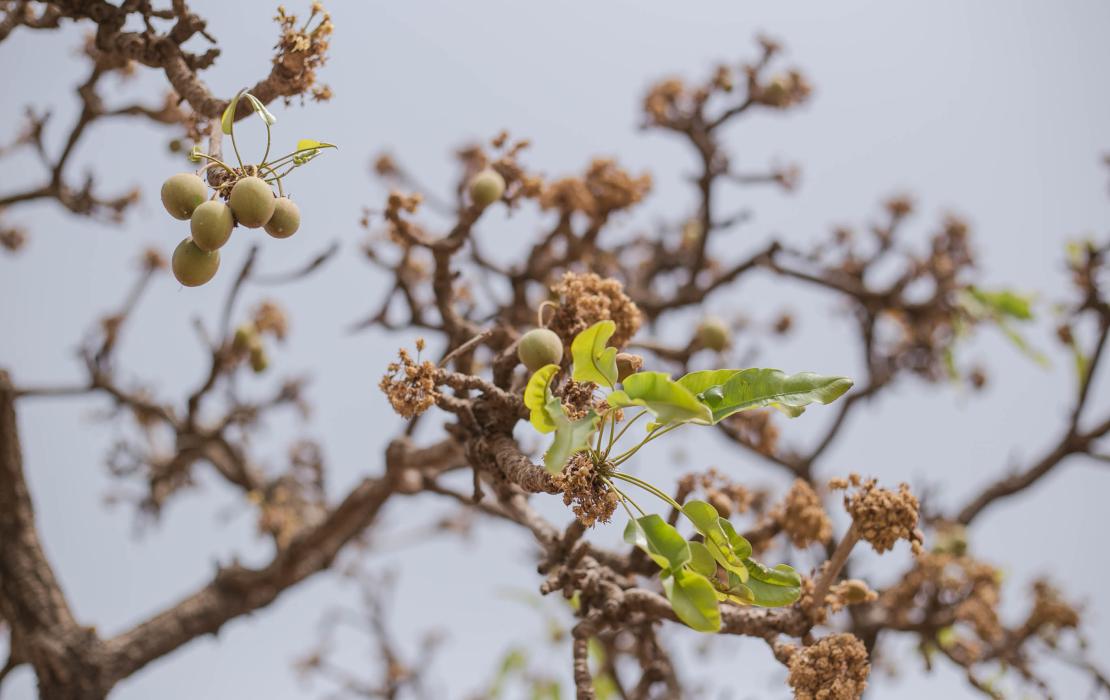
Reforesting shea parklands ensures a sustainable supply of shea nuts. Photo: Global Shea Alliance
The transformative impact of Ghana's shea value chain
According to the Global Shea Alliance, an estimated 16 million women across 21 African countries, from Senegal to South Sudan, depend on the shea tree for their livelihood. In Ghana, women play a central role in every stage of the shea value chain, from harvesting the nuts in rural communities to processing and selling shea butter in local and international markets. Participation in the shea business empowers Ghanaian women economically, socially and entrepreneurially, offering opportunities for income generation, skills development and increased decision-making power within their families and communities.
However, despite their indispensable contributions, women in the shea sector often face a variety of challenges that undermine their economic opportunities and perpetuate inequality, including limited access to resources, low incomes, market access challenges and gender-based discrimination.
Forming and supporting women’s cooperatives is pivotal to address these challenges. As Hajia Rabiatu Abukari, who leads the organization Ripples Ghana, a shea production NGO in the country’s Northern Savannah Zone (NSZ), points out: “Being part of a cooperative is essential for women in order to obtain quality permits and gain access to the international market, which is why I initiated the formation of cooperative groups within several communities.” The Global Shea Alliance, in partnership with UNDP in Ghana, supports women in securing fair earnings through cooperatives, access to storage facilities and connections to larger shea product buyers.
Shea parklands can help fight climate change
Preserving and sustainably managing shea parklands, such as the NSZ, is not only essential for supporting local communities that depend on shea resources for their livelihoods, but also crucial for mitigating climate change and conserving biodiversity. Shea parklands are rich in biodiversity and possess significant carbon sequestration potential. The West African region's approximately one billion shea trees as well as the surrounding parklands sequester around 1.5 million tons of carbon dioxide annually.
Beyond their ecological importance, these parklands serve as valuable resources and symbols of tradition, spirituality and identity for Ghanaians, playing a vital role in the country's cultural heritage.
Nowadays, these unique savanna landscapes face a multitude of threats, primarily driven by clearing for large-scale agriculture and deforestation resulting from the logging of shea trees for charcoal production. In addition to these challenges, they also contend with issues like soil degradation, vulnerability to climate change and water scarcity. Restoring degraded shea parklands and fostering sustainable land management practices are therefore key – both for ecological integrity and economic prosperity. Musa Fusiana, a farmer at the tree nursery in Najabongul in Northern Ghana underscores: “As the seedlings grow and bear fruit, their benefits will extend to all – ensuring a legacy for our children and future generations through the trees we are planting today.”
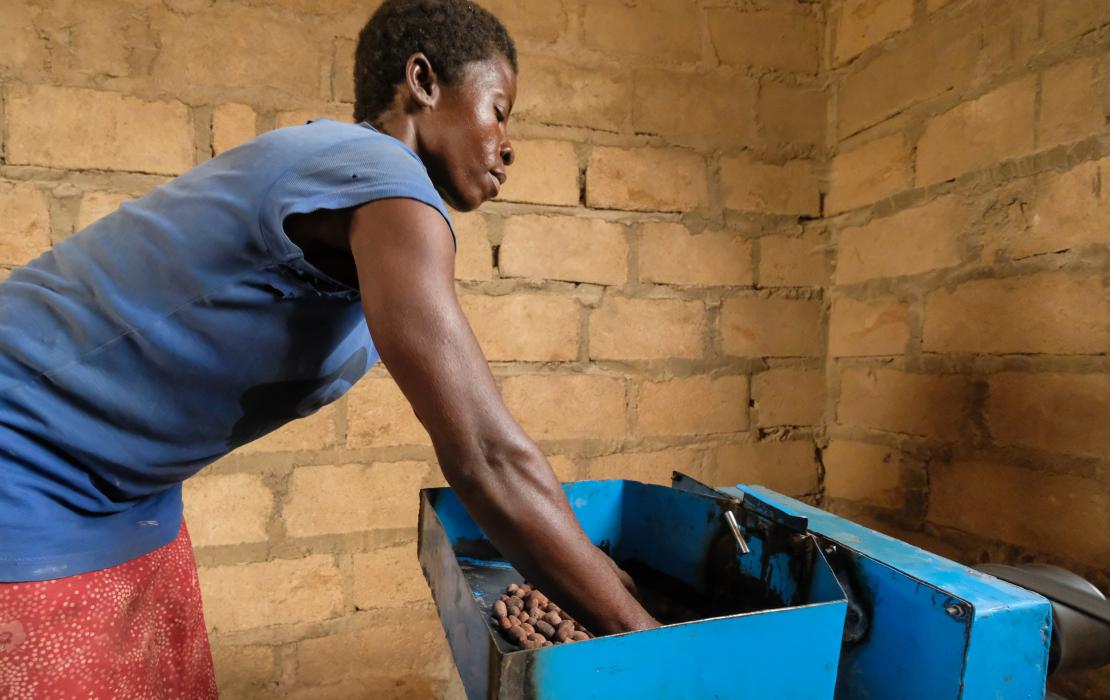
16 million women across 21 African countries depend on the shea tree for their livelihoods. Photo: Axel Fassio/CIFOR
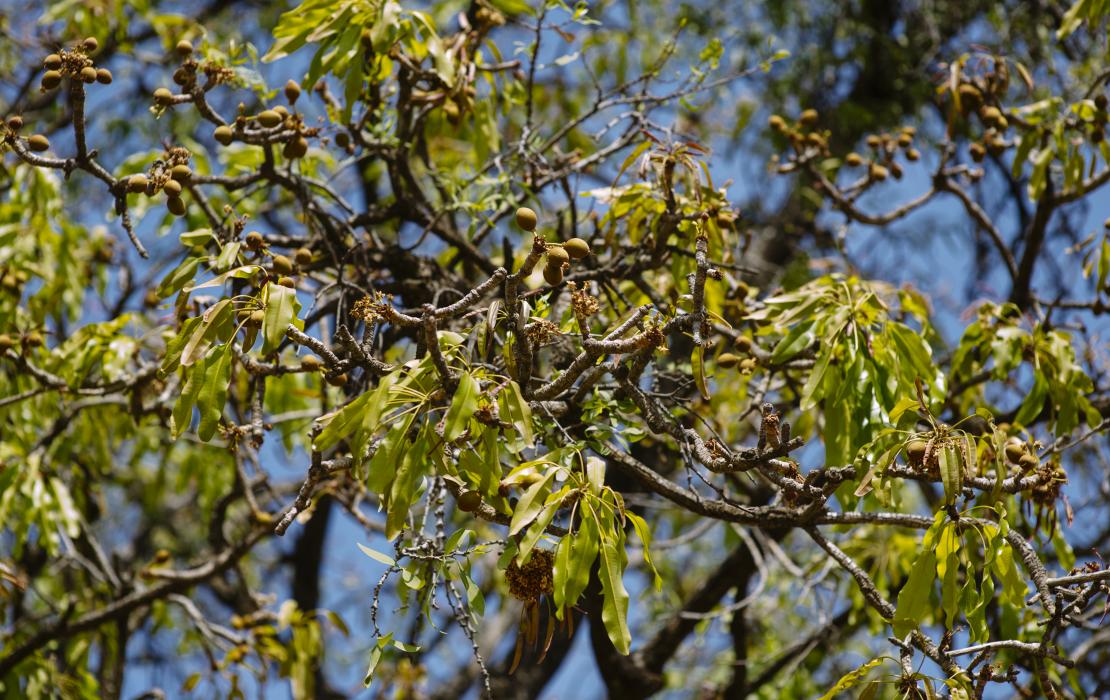
Shea parklands are rich in biodiversity and possess significant carbon sequestration potential. Photo: Axel Fassio/CIFOR
Unlocking the power of women in value chains
Investing in women's economic empowerment within value chains, such as shea in Ghana, is not only a matter of social justice but also a wise economic decision with far-reaching societal and generational benefits. By breaking down systemic barriers and creating opportunities for women to participate fully and equally in value chains, we can unlock their potential as drivers of innovation and productivity, while reducing poverty and promoting gender equality.
***
On International Women's Day, we celebrate the achievements and resilience of women worldwide. This year's theme, Invest in Women - Accelerate Progress, underscores the critical importance of economic empowerment for women. In Ghana, the shea value chain offers a compelling example of how investing in women can transform entire communities and advance gender equality – while helping to preserve the country’s unique and highly biodiverse savanna landscapes.
***
For more information, please visit the project profile for the Ghana Shea Landscape Emission Reductions Project.
The project is supported by UNDP Climate & Forests which assists different countries and stakeholders in the implementation of the Paris Agreement by reducing deforestation, forest degradation and promoting sustainable development pathways.
